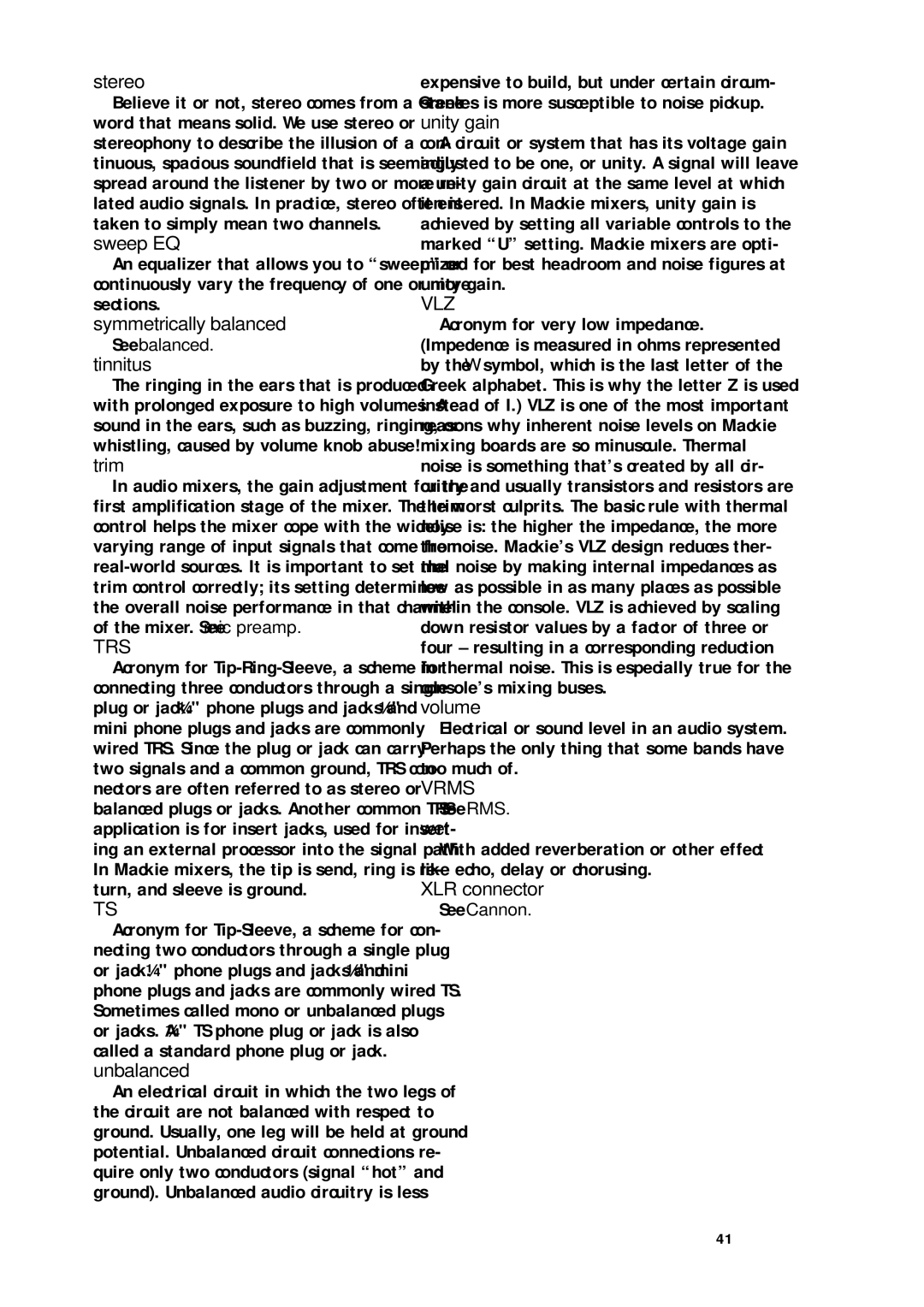stereo
Believe it or not, stereo comes from a Greek word that means solid. We use stereo or stereophony to describe the illusion of a con- tinuous, spacious soundfield that is seemingly spread around the listener by two or more re- lated audio signals. In practice, stereo often is taken to simply mean two channels.
sweep EQ
An equalizer that allows you to “sweep” or continuously vary the frequency of one or more sections.
symmetrically balanced
See balanced.
tinnitus
The ringing in the ears that is produced with prolonged exposure to high volumes. A sound in the ears, such as buzzing, ringing, or whistling, caused by volume knob abuse!
trim
In audio mixers, the gain adjustment for the first amplification stage of the mixer. The trim control helps the mixer cope with the widely varying range of input signals that come from
TRS
Acronym for
TS
Acronym for
unbalanced
An electrical circuit in which the two legs of the circuit are not balanced with respect to ground. Usually, one leg will be held at ground potential. Unbalanced circuit connections re- quire only two conductors (signal “hot” and ground). Unbalanced audio circuitry is less
expensive to build, but under certain circum- stances is more susceptible to noise pickup.
unity gain
A circuit or system that has its voltage gain adjusted to be one, or unity. A signal will leave a unity gain circuit at the same level at which it entered. In Mackie mixers, unity gain is achieved by setting all variable controls to the marked “U” setting. Mackie mixers are opti- mized for best headroom and noise figures at unity gain.
VLZ
Acronym for very low impedance. (Impedence is measured in ohms represented by the Ω symbol, which is the last letter of the Greek alphabet. This is why the letter Z is used instead of I.) VLZ is one of the most important reasons why inherent noise levels on Mackie mixing boards are so minuscule. Thermal noise is something that’s created by all cir- cuitry and usually transistors and resistors are the worst culprits. The basic rule with thermal noise is: the higher the impedance, the more the noise. Mackie’s VLZ design reduces ther- mal noise by making internal impedances as low as possible in as many places as possible within the console. VLZ is achieved by scaling down resistor values by a factor of three or four – resulting in a corresponding reduction in thermal noise. This is especially true for the console’s mixing buses.
volume
Electrical or sound level in an audio system. Perhaps the only thing that some bands have too much of.
VRMS
See RMS.
wet
With added reverberation or other effect like echo, delay or chorusing.
XLR connector
See Cannon.
41
